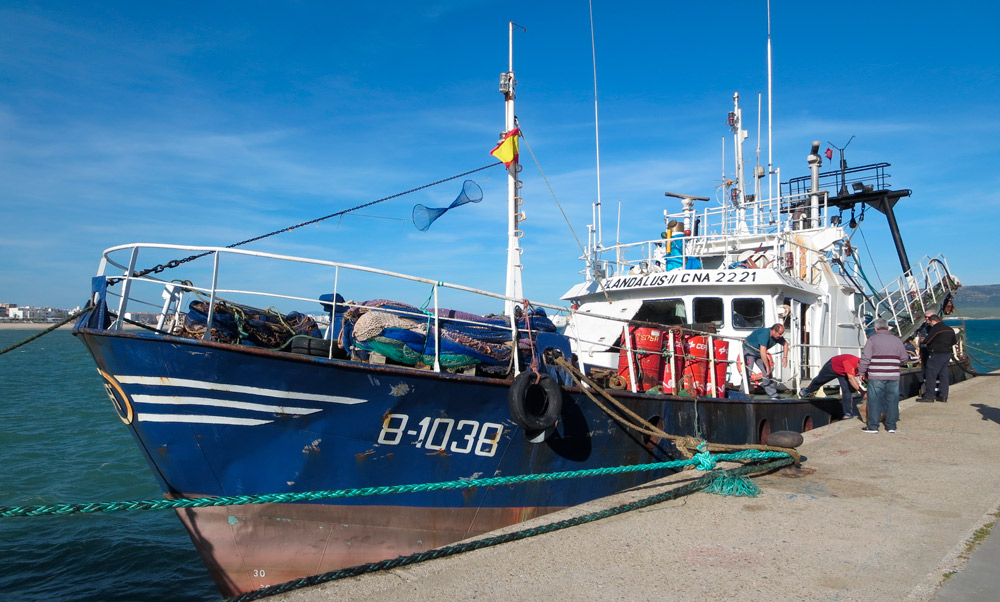The coronavirus crisis has caused unprecedented economic turmoil.
It appears as though the economic standstill that has occurred in the attempt to limit the spread of infection will have repercussions of massive proportions at a global level.
Sectors that are particularly important to Spain, such as tourism and Horeca (hotels, restaurants and catering), have had to remain closed for weeks on end. Even now, as the de-escalation process commences, the situation continues to remain complicated for bars and restaurants, which have no other option than to implement special safety measures to prevent new outbreaks of the pandemic.
However the reality of the situation is far more complex, as some primary sectors, such as fishing, greatly depend on the catering and restaurant industry. This means that if restaurants close, fishermen will be left with larges surpluses that are hard to sell within the individual consumer channel.
Therefore, we find ourselves living in a time in which it is more necessary than ever before to reinvent ourselves and adapt to new situations, as this crisis will be long and complex, at least for the hospitality industry.
If customers cannot enjoy fish or seafood at their favourite restaurants, then it becomes necessary to deliver it to their homes so they can continue enjoying these delicacies in optimal conditions (which now, more than ever, entails the need for our preservatives for fish and seafood).
This article offers a review of the most innovative ways in which some companies in the sector are starting to implement product sales directly to end consumers.
The fishing sector hasn’t stopped working for even a moment
The first thing to take note of is that the fishing sector has been on top of the situation since the very beginning of this health crisis.
Although some fishing vessel owners have had to moor some of their boats, fleets haven’t stopped fishing for a second and have adapted to this new reality by establishing additional safety measures to protect their workers.
This means that at no time has there been any shortages and end consumers have been able to buy all kinds of seafood products at their regular fishmongers.
Nevertheless, demand has dropped drastically. Both restaurants and bars, as well as hotels and schools—the main fish and seafood consumers—haven’t been able to open for more than 50 days. This has led to surplus stock that has pushed sales prices down for fishermen and wholesalers.
To find a use for this surplus product, wholesale fish markets have had to divert all the surplus to individuals. To do this, they’ve had to transform their regular distribution channels. That is the huge challenge that producers are currently facing.
This issue is crucial to the industry. The survival of many fishermen’s guilds depends on resolving this issue, as they will have no other option than to moor their boats if no other solution can be found.
Good industry practices
Multiple businesses in the sector have been able to swiftly adapt to the new sales channels.
Those with the capabilities have created websites to sell their products directly over the Internet while other businesses have realised it is possible to sell fish and seafood—both fresh and frozen—over the phone or through WhatsApp, thanks to the added value of providing home delivery.
In fact, many local markets and fishmongers have set up home delivery systems so their clients can still enjoy their favourite fish and seafood products without ever having to leave their homes.
Selling fish on the Internet
Many people might think that it is difficult to buy fish without seeing what it looks like.
However the coronavirus has put an end to this reluctance of many fish and seafood consumers as they have seen that online fish sales can meet their needs with every guarantee.
In fact, some industry associations have created online shops to find an outlet for all the surplus product that is being left behind in wholesale fish markets because bars and restaurants aren’t bidding on it. Meanwhile, those websites that were already operational prior to the crisis have experienced large increases in traffic and orders.
What is most noteworthy is that many of those orders are coming from new customers who had never purchased fish online until now.
Home deliveries, now more necessary than ever for preventing infection
When the stay home order started, people set out in droves to purchase basic needs products such as toilet roll, bleach, pasta, rice, and beans.
However, as the isolation and lockdown period continued, consumers also started considering the need to include fish in their diets, which led to a significant increase in visits to these specialised websites.
Traditional fishmongers have turned to a simpler and more traditional method: telephone sales. Many are even accepting orders through WhatsApp.
Rather than having customers come to the shops to pick up their purchases, these businesses have set up delivery systems with the option of paying by card at the front door.
It’s quite clear that people don’t want to give up eating fish, yet many are afraid of getting sick if they have to go to the fishmonger’s shop. That’s why an ever increasing number of businesses are now offering home delivery for all kinds of orders.
Wholesale companies that previously were dedicated exclusively to the HORECA channel (hotels, restaurants and catering) have also joined the home delivery trend. Decreasing sales have prompted them to also accept smaller orders and deliver to customers’ homes.
Are you a fish and seafood distributor or wholesale provider? Do you need any of our PH7 technological solutions to help you sell your products? Don’t hesitate to get in touch with us by filling in this form. We can help you.



